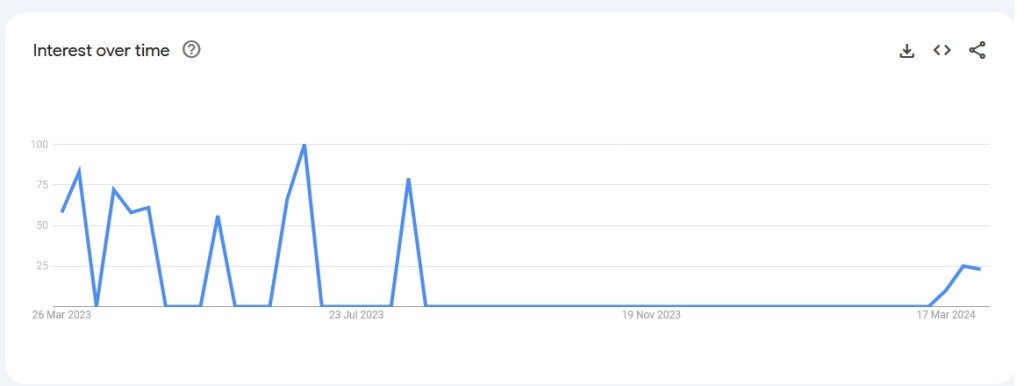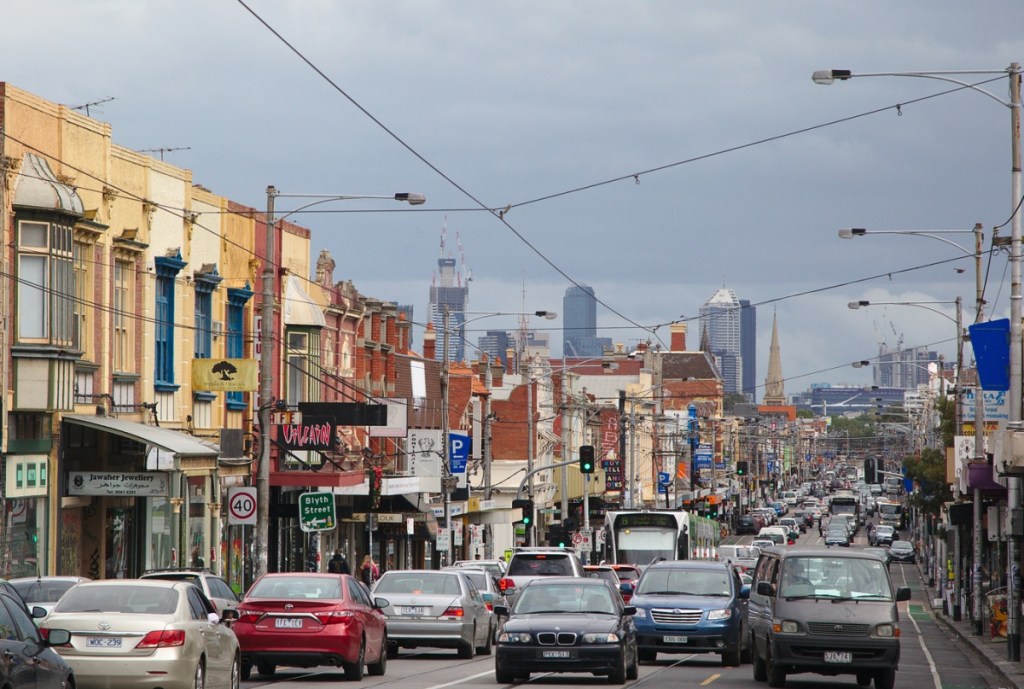When politicians stand up and use the Senate as a forum for conspiracy theories, worryingly, some Australians listen.
Pauline Hanson, railing against the Albanese government’s digital ID bill last week, claimed it was a “step towards the 15-minute cities already being imposed in the United Kingdom”, which is “heavily penalising anyone trying to travel outside their community”.
“This is a secretive international one world government,” she said.
After clips of Hanson’s fabrication were spread online, it sparked the most interest in the conspiracy-laden planning scheme since August 2023, according to Google Trends.

Hanson’s false claims about 15-minute cities spiked interest in the subject. Photo: Google Trends
Dr Naomi Smith, a digital sociologist at the University of the Sunshine Coast, said that politicians were helping legitimise conspiracy theories by putting them into the parliamentary record.
“It makes it harder to debunk because it has this weight of legitimacy after being spoken about by someone who’s elected to represent the public,” she said.
“There is political capital in these types of conspiracy theories in the information and political environment that we currently live in, which is obviously why Pauline Hanson has bought it up.”
Hanson’s claim that authorities in Britain are penalising or fining people for leaving their local area is false, and the misinformation around the 15-minute city planning concept has been thoroughly debunked.
Oxford, UK
The falsehood stems from Oxfordshire, where the local council introduced ‘filters’ that monitor licence plates and fine drivers during peak traffic periods, in a trial aimed at reducing congestion and making six specific areas more walkable.
In high-traffic areas, residents can park fine-free for 100 days a year, with widespread exemptions for “carers, blue badge holders, businesses, and emergency services”.
Nowhere in this plan do people face blocks or bans from entering busy areas. Instead, it aims to introduce low-traffic neighbourhoods, a concept successfully adopted in Britain and around the world.
Low-traffic neighbourhoods, introduced in the 1970s, restrict car access to make an area more accessible for walking and biking.
Smith said issues and culture wars were often imported from other countries.
“This has been playing out in Australian politics for a few years now,” she said.
“They’re going to continue courting a segment of the population that has a low trust in our democratic institutions and government.”

Efforts to reduce local traffic have created outlandish conspiracy theories. Photo: Getty
Legitimate criticisms of low-traffic neighbourhoods and 15-minute cities exist. However, misrepresenting the scheme as some form of social control by a shadowy cabal – soon to be introduced in Australia – departs from reality.
Smith said conspiracy theories were often based on a kernel of truth, but “they are not true in the particular way that the conspiracy theory presents them as being true”.
“We know from Edward Snowden that governments engage in widespread surveillance of their citizens,” she said.
“It’s just that they’ve taken it, mirrored it and twisted it into something that is very different from the world that we live in.”
Stoking the fire
Last year, conspiracy theories surrounding 15-minute cities reached fever pitch as those opposed regularly disrupted local council meetings.
One group even sued their local council in the Supreme Court of Victoria.
Smith said sovereign and conspiratorial-minded citizens had been actively trying to get themselves into positions of power.
“These people present themselves as brave truth-tellers,” she said.
“These people have an economic interest in these rumours, conspiracy, misinformation or whatever you want to call it.”
The dissemination of conspiracy theories does cause harm within Australia and globally.
A toxic mix of sovereign citizen-style conspiracies and Christian doomsday philosophy radicalised the perpetrators of the Wieambilla shooting.
The parents of the tragic Sandy Hook massacre still endure harassment a decade after the school shooting, fuelled by world-famous conspiracy theorist Alex Jones labelling them actors and frauds.
The Australian perpetrator of the Christchurch massacre was influenced by paranoia and fear stoked on the internet, while the January 6 insurrection at the US Capitol was caused by conspiracies and falsehoods spread by elected officials.
No comments:
Post a Comment